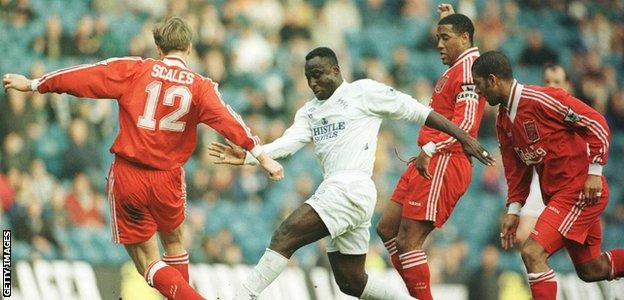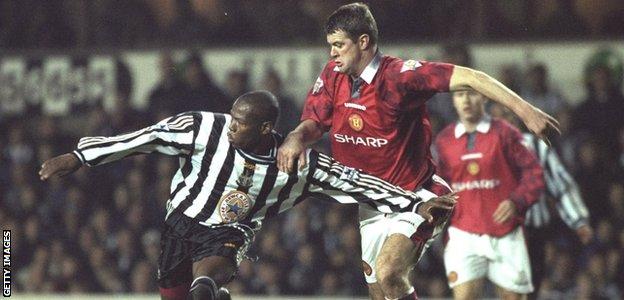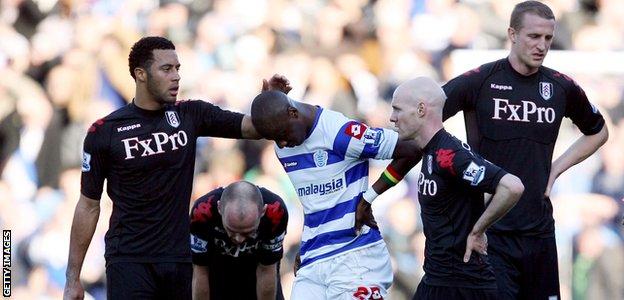
The January transfer window can seem like an endless conveyer belt of the same old names being shuffled between clubs like human football stickers, but occasionally the winter trading zone genuinely introduces a newcomer who brings a season-changing impact.
Here are some of those who made the biggest impressions - as well as a few who might provide desperate Premier League clubs with food for thought about what might happen if a late move into the market does not work out.
January 2019 marks 10 years since the Andrey Arshavin transfer on deadline day, a deal that was delayed for so many reasons that the Russian was not registered and the deal ratified until 3 February.
Two months later Arshavin helped derail Liverpool's title bid by scoring all four goals in the club's 4-4 draw at Anfield. His tally of six goals and five assists in 12 games by the end of the campaign was enough for him to finish as runner-up in the club's player of the season awards.
Only one winter import since Arshavin has scored a hat-trick in the remainder of the season, and it was another Russian, Pavel Pogrebnyak, a man who adapted so well to the Premier League with Fulham that he scored with each of his first six shots on target in it.

Yeboah was voted Player of the Year in his second season at Elland Road
The current summer/January transfer window calendar wasn't introduced to English football until 2002-03 but even before then the first month of the year was seen as a key time to bring in new personnel.
Leeds signed Tony Yeboah from Eintracht Frankfurt 24 years ago and although his memorable long-range stunners against Liverpool and Wimbledon came the following season, his 12 goals in 16 starts (and 11 wins) in the second half of 1994-95 - including a hat-trick against Ipswich - was, in terms of sheer number of goals by a new January import, a Premier League record until 2012.
Which leads us on to…
Signed by Newcastle in January 2012, Papiss Cisse's form in his first five months at the club was astonishing. Thirteen goals in only 14 appearances from only 21 shots on target, one of which was the BBC goal of the season (a physics-defying outside-of-the-boot banana kick straight out of Sensible Soccer at Stamford Bridge) fired the Magpies to fifth place at the end of the season and earned Alan Pardew the manager of the year crown ahead of actual league title winner Roberto Mancini.
Cisse's subsequent goalscoring was reasonable enough (24 in 103 appearances) but he was never able to recapture the incredible form that shook the division that spring.

Newcastle twice finished runners-up in the Premier League behind Manchester United during Asprilla's time at the club
Talking of Newcastle and mid-season signings, none have been more criticised over the years than the decision to bring in Faustino Asprilla in 1996.
Newcastle's era-defining implosion in the title race has stained the Colombian's reputation ever since, but on raw numbers it's hard to argue that Asprilla didn't contribute.
His final total of seven assists (in 14 games) is the most contributed by a Premier League winter arrival and was only two fewer than Ryan Giggs managed all season.
January 2002 saw the government declare the foot and mouth crisis over and Bolton manager Sam Allardyce celebrated by drafting Fredi Bobic in on loan from Borussia Dortmund.
The highlight of Bobic's short stay in Lancashire was a hat-trick against Ipswich in April. Those three goals made up 75% of the number he contributed to Wanderers and Bobic retains the niche position as the lowest scoring Premier League player with a hat-trick to his name.

Diakite became the fifth player to be shown a red card for QPR during the 2011-12 season
Brought in on loan in January 2012 to help QPR in their fight against relegation, Samba Diakite was sent off after 33 minutes of his debut for two bookable offences.
By March, just 123 minutes into his Premier League career, Diakite had conceded 12 fouls and picked up another booking but Rangers' eventual survival at the end of the season persuaded them to sign him permanently.
By October he had moved on to six yellows and two reds in his first 12 appearances and he ended 2012-13 winless in 14 games. Those are some rough numbers, however you want to look at it.
Marcus Bent ended his career having appeared for a record eight different clubs in the Premier League and the first of these was Crystal Palace, who he joined in January 1998.
In his 16 games that season, Bent lost 12 times; no January Premier League debutant has ever lost more in the remainder of the season, but he did his bit, scoring five goals and assisting one more. Palace were out of shape, but Bent wasn't.

Sigurdsson was named Premier League Player of the Month for March following his loan move to Swansea in 2012
Sigurdsson had played in England as a youngster with Reading, Crewe and Shrewsbury but Swansea gave him his first opportunity in the Premier League when they loaned him from Hoffenheim in January 2012.
The Icelander proceeded to score seven and assist three more in 18 appearances as Swansea swaggered their way to 11th in their first top-flight campaign since 1983.
The Swans then lost their manager Brendan Rodgers to Liverpool at the end of the season and keen though they were to make Sigurdsson's move permanent, they were gazumped by Tottenham back in the era when the Londoners signed players.
Suarez is regularly cited as one of the best examples of a player brought to the Premier League midway through the season but his first half-campaign at Liverpool was no goal spree.
The Uruguayan scored on his debut against Stoke in 2011 but added only three more despite hitting 23 shots on target in his 13 games. He would then proceed to more than double his goal tally in each of the next two seasons before hitting 31 in 33 matches in 2013-14 as Liverpool came so close to landing a first Premier League title.
Frequently presented as one of the worst signings in Premier League history, Savio Nsereko joined West Ham in January 2009 for a reported £9m and made only one start for the Hammers, in a bleak 0-0 draw with West Bromwich Albion in March.
His 10 appearances saw him muster seven shots, which works out as £1.29m per effort, while West Ham scored a total of just six goals in the games he appeared in. Not great business, it has to be said.
Panic buyers beware.